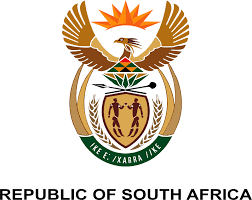
CONTROL GISc TECHNICIAN GRADE A HYDROGRAPHY DATABASE MANAGEMENT
South African Government
R499 275 – R570 657 per annum
Permanent
Cape Town
Posted 2023-12-10T11:35:25.249Z
ABOUT THE JOB
Fleet Command HQ: SA Navy Hydrographic Office, Tokai
KEY RESPONSIBILITIES
Establish and maintain the Work Unit’s Operational Business Framework. Manage and maintain the Hydrographic Digital Databases and provide Hydrographic Digital Dataset Services. Develop and maintain Work Unit Performance Monitoring Systems. Provide direction to the Work Unit’s Functional Area(s). Manage Work Unit day-to-day.
EXPERIENCE
Language proficiency in English (verbal and written). Communication skills at all levels. Registration and experience within the Marine Cartography environment would be an advantage. Working knowledge on Geo-database implementation. Knowledge on GIS software applications. Advanced understanding of GIS applications and spatial data. An in-depth knowledge of theory, standards, principles and practices of GIS and cartography. Analytical, problem solving, planning, organising and decision making skills. Ability to manage production personnel and exercise the Departmental disciplinary system. Good interpersonal skills. Ability to coach and mentor subordinates. Computer literate in MS Office Suite. Advanced computer skills and the ability to conduct presentations using supporting software and hardware. Project Management skills. Excellent report writing skills and the ability to compile complex reports
QUALIFICATIONS
Diploma in Geomatics (GISc), Cartography or Relevant Qualification.
6 Years post qualification GISc Technician experience. Compulsory registration with Relevant Professional Council. Valid Driver’s License
About Company
The South African government operates as a constitutional democracy with a three-tier system of government, consisting of national, provincial, and local levels. The government is based on the principles of separation of powers among the legislative, executive, and judicial branches. The national government is responsible for overarching policies and legislation, while provinces and municipalities have authority over more localized matters. The President, elected by the National Assembly, serves as the head of state and government. The National Assembly is the primary legislative body, and the National Council of Provinces represents the provinces at the national level. The government's administrative structure is composed of various departments, each responsible for specific policy areas and services. Key government departments include the Department of Basic Education, which oversees the education system, and the Department of Health, responsible for healthcare services. The Department of Home Affairs manages immigration, citizenship, and civil registration. The Department of Finance plays a crucial role in economic policy, budgeting, and financial management. Additionally, the Department of International Relations and Cooperation handles South Africa's foreign affairs, while the Department of Trade, Industry, and Competition focuses on economic development and industrial policy. The Department of Environmental Affairs is tasked with environmental conservation and sustainable development. Local government plays a vital role in service delivery, with municipalities responsible for essential services like water, sanitation, and housing. The South African government has made efforts to address historical disparities through policies aimed at economic and social transformation, including initiatives to combat poverty, unemployment, and inequality. While South Africa faces challenges such as corruption, socio-economic disparities, and infrastructure issues, the government continues to work towards fostering inclusive growth, good governance, and effective service delivery to enhance the quality of life for all citizens.
JobNetwork
Search over a thousand jobs in South Africa